12 best new restaurants and bars in Seoul
By Elizabeth Eun, for CNN
Updated 0442 GMT (1142 HKT) July 31, 2013
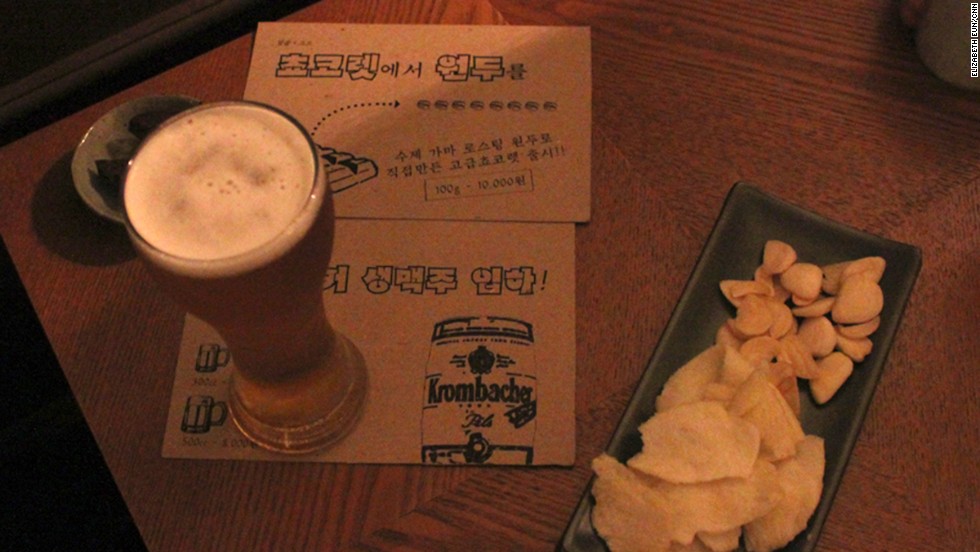
15 photos:
Dabang – With retro interior and simple menu, Dabang aims for a 1970s Seoul vibe.
Hide Caption
8 of 15
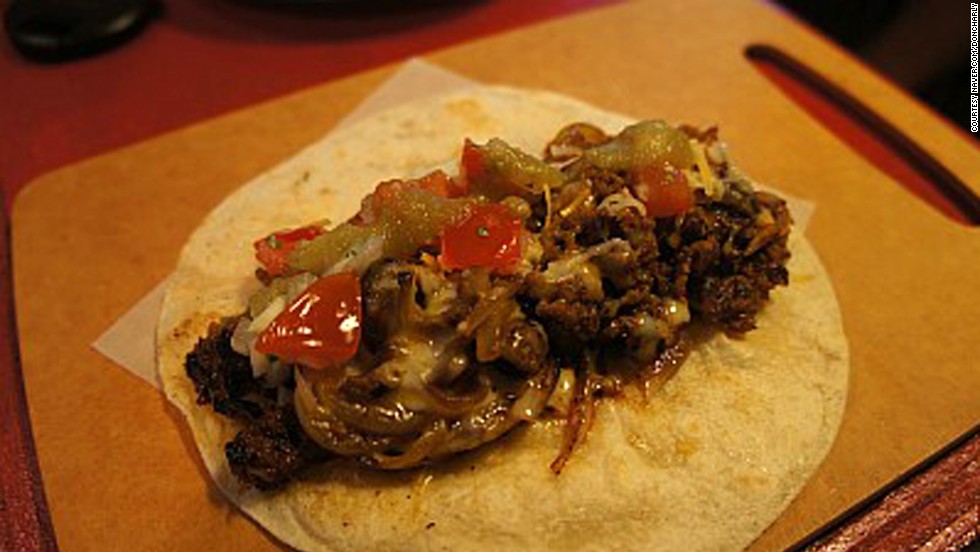
15 photos:
Don Charly – At last, Mexican-Mexican food in Seoul.
Hide Caption
9 of 15
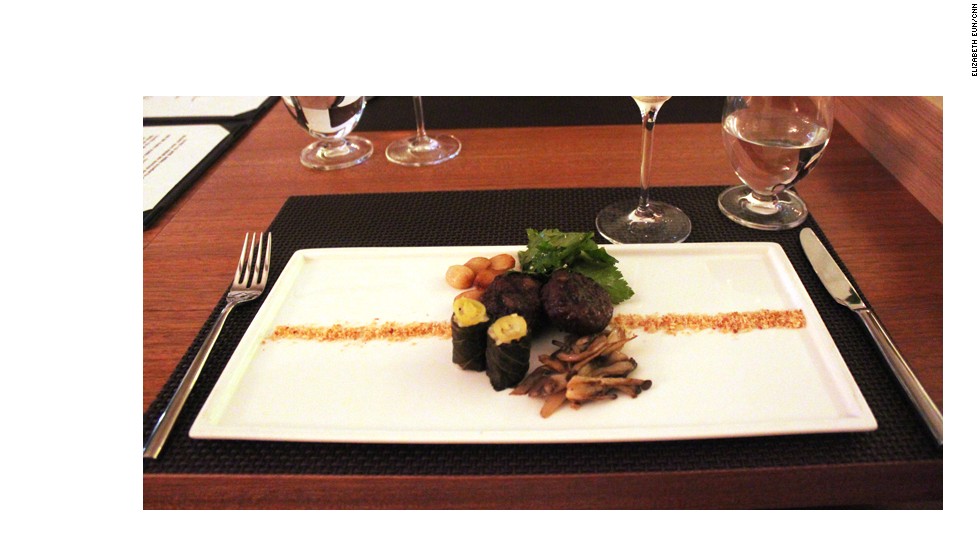
15 photos:
East Village – Despite its New York name, East Village serves high-end Korean food from chef Kwon Woojoong.
Hide Caption
10 of 15
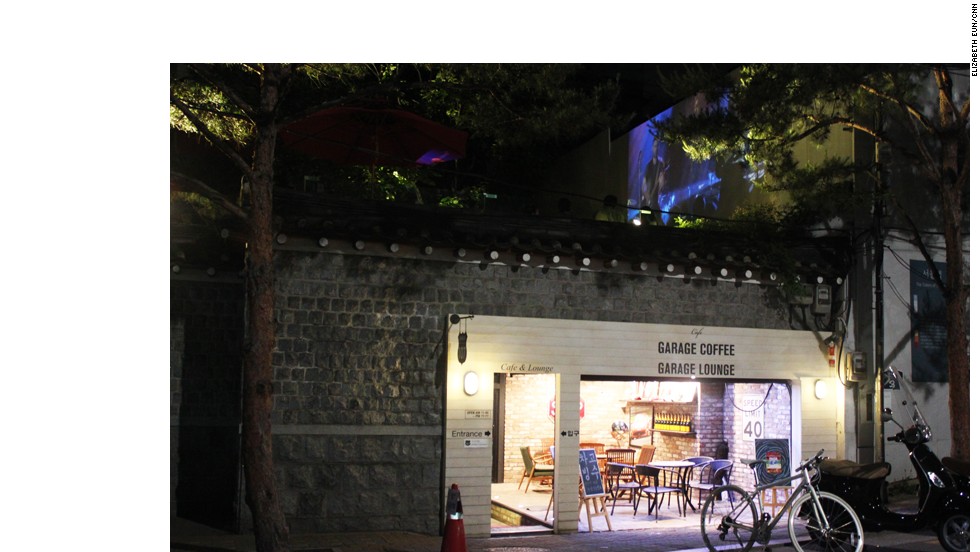
15 photos:
Garage 107 – Fast, loud and unabashedly modern, Garage 107 is the wacky brainchild of Ferrari race car driver Tacksung Kim.
Hide Caption
11 of 15
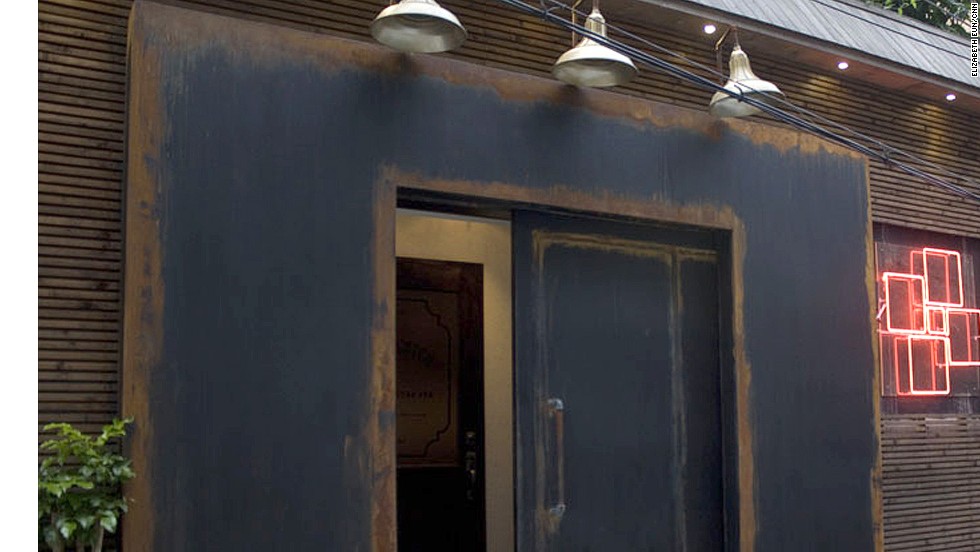
15 photos:
Hopscotch – There's no sign outside the restaurant, so you'll have to remember what the exterior looks like.
Hide Caption
12 of 15
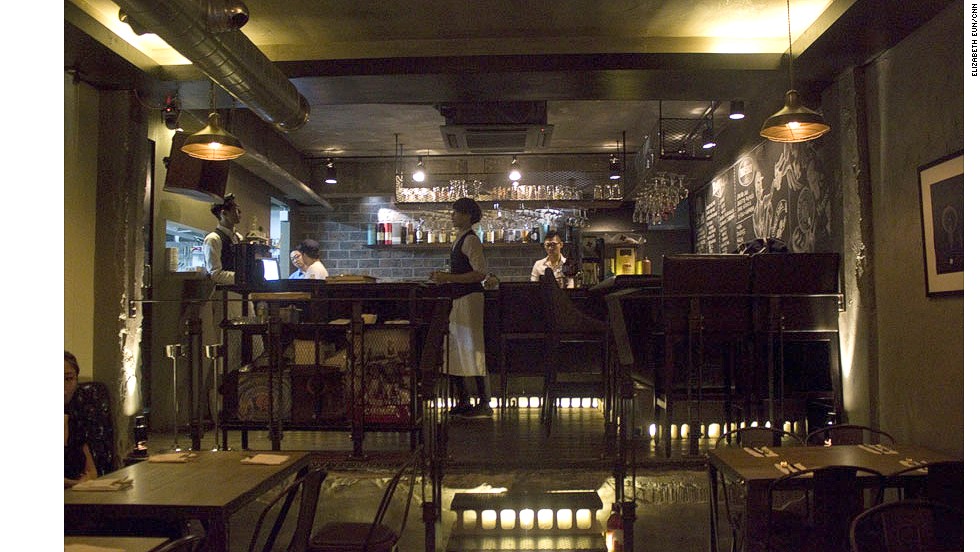
15 photos:
Hopscotch – This near-hidden Gangnam gastropub serves duck frites, brisket bites, jambalaya and other American-style dishes that are hard to find in Seoul.
Hide Caption
13 of 15
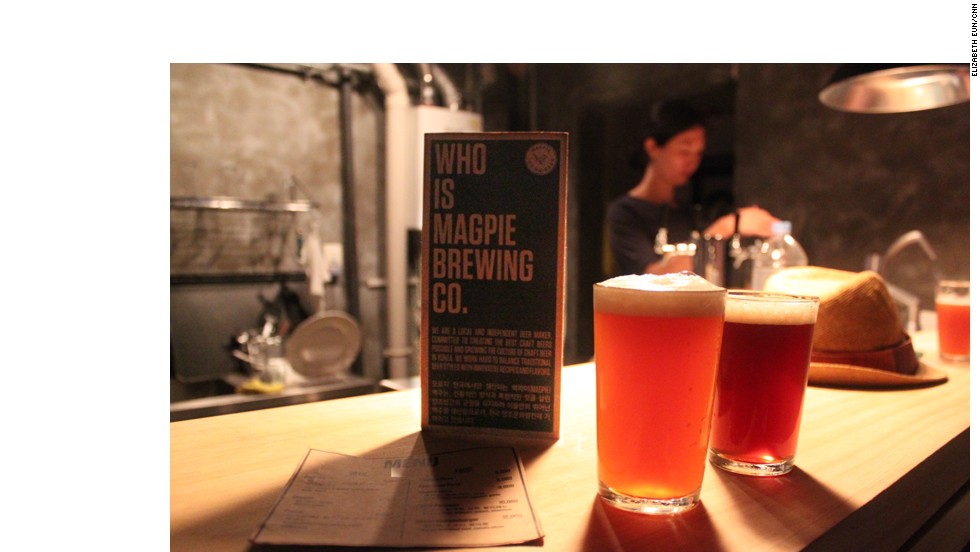
15 photos:
Magpie Basement – The brewshop serves just two beers, both home-brewed.
Hide Caption
14 of 15
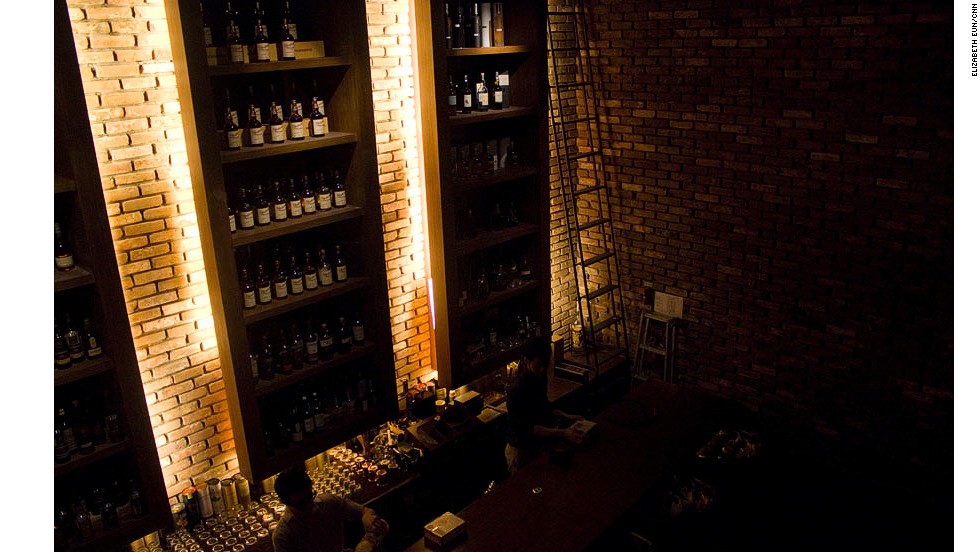
15 photos:
Vault +82 – Vault +82 is the latest stellar single malt whiskey bar to open in Seoul. The bar offers complimentary shoeshine service and umbrellas.
Hide Caption
15 of 15
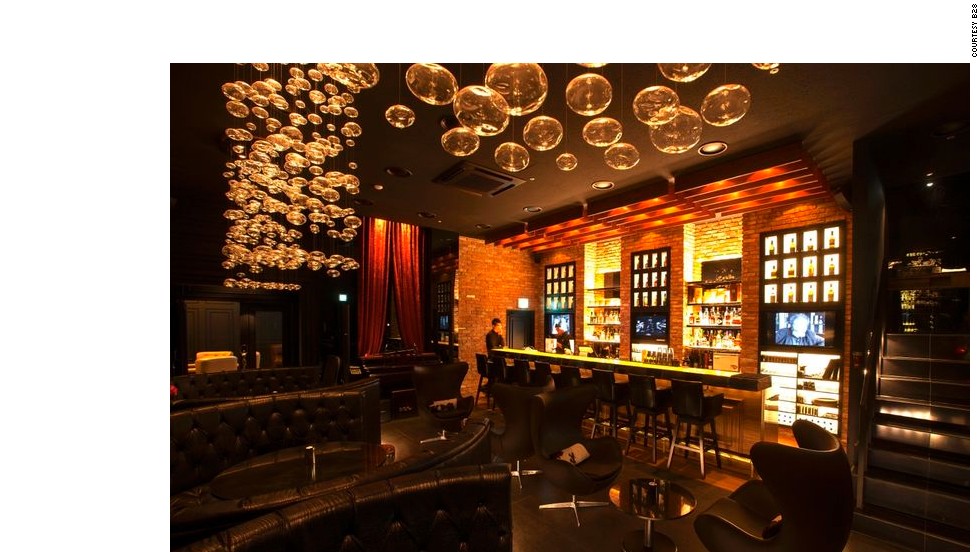
15 photos:
B28 Seoul – Apgujeong's trendy B28 bar is run by an expat husband-and-wife team and features one of the city's largest selections of single cask and single malt whiskeys.
Hide Caption
1 of 15
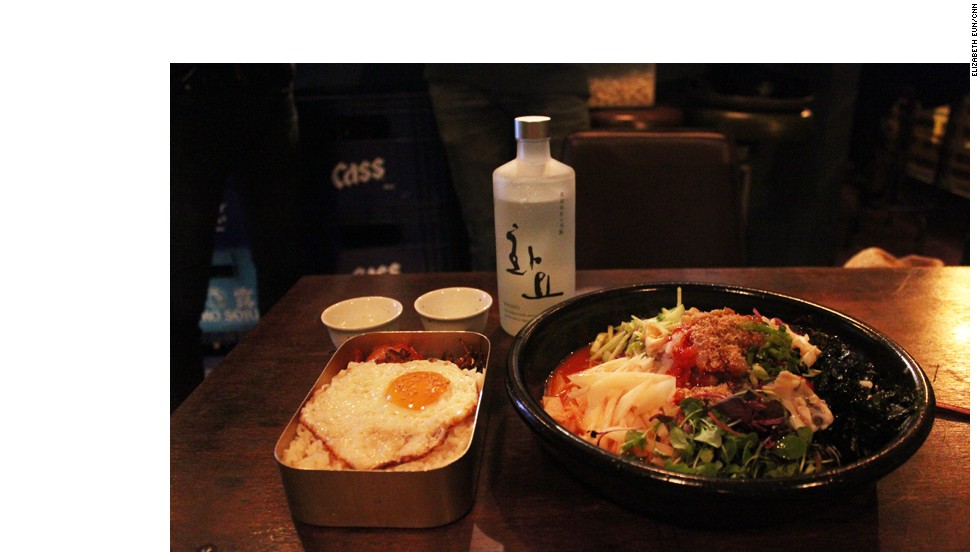
15 photos:
Bangbeom Pocha – This casual drinking hole is decorated like an old police station and jail and serves creative anju (food served with alcohol).
Hide Caption
2 of 15
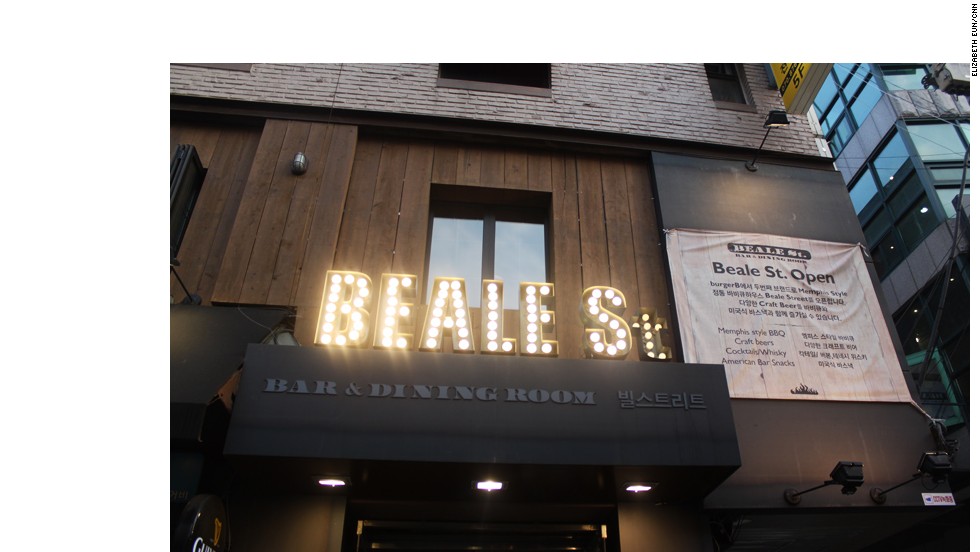
15 photos:
Beale St. – Beale St. serves American-style barbecue in Hongdae, one of Seoul's trendiest districts.
Hide Caption
3 of 15
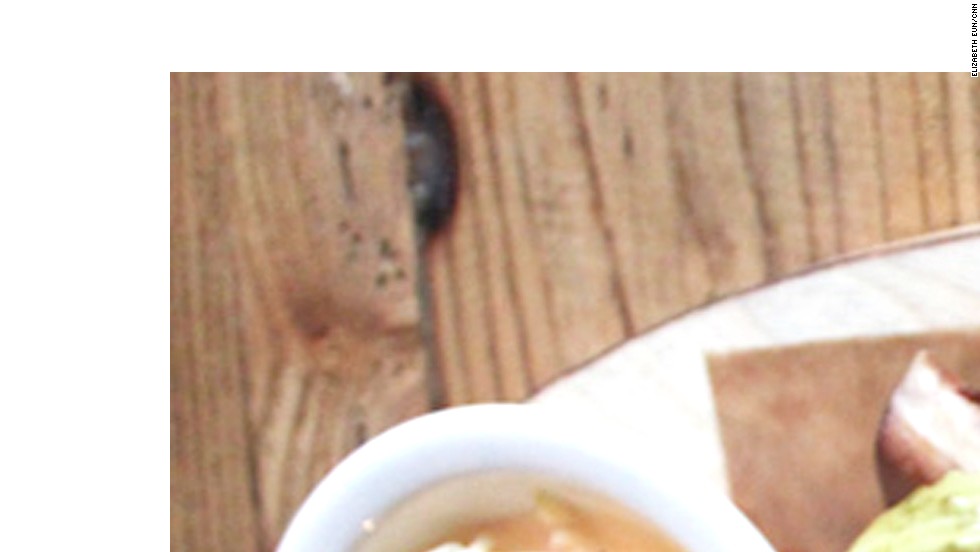
15 photos:
Beale St. – These short ribs were smoked for six hours-- you can almost smell 'em all the way in Tennessee.
Hide Caption
4 of 15
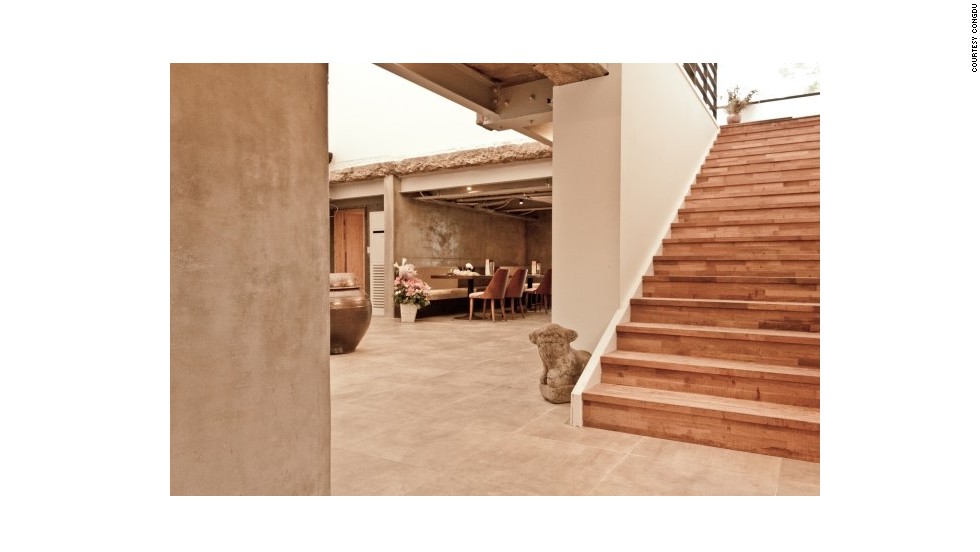
15 photos:
Congdu – Congdu's is located inside a national treasure -- a traditional Korean building used by the last Chosun king's grandmother. The restaurant serves neo-Korean food.
Hide Caption
5 of 15
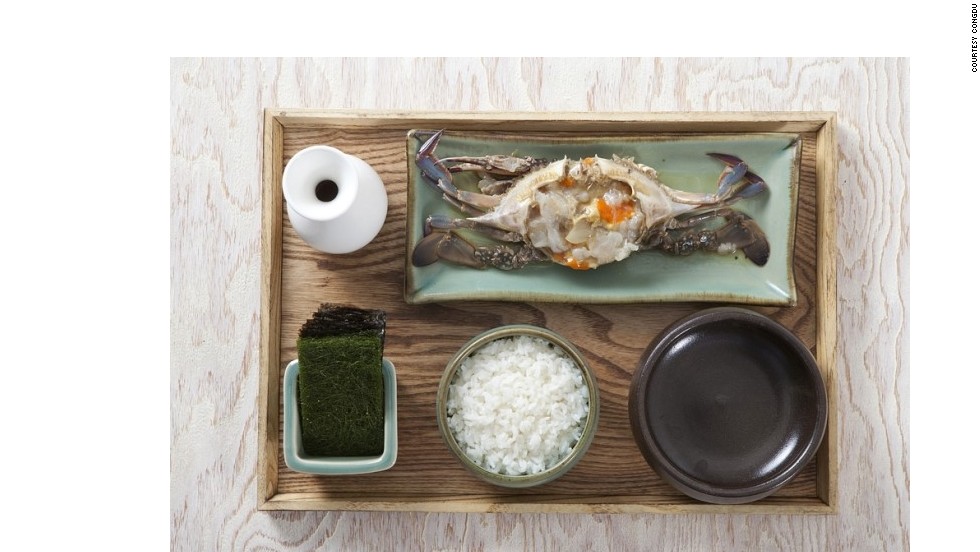
15 photos:
Congdu – Congdu's soy sauce crab is made with Korean blue crab.
Hide Caption
6 of 15
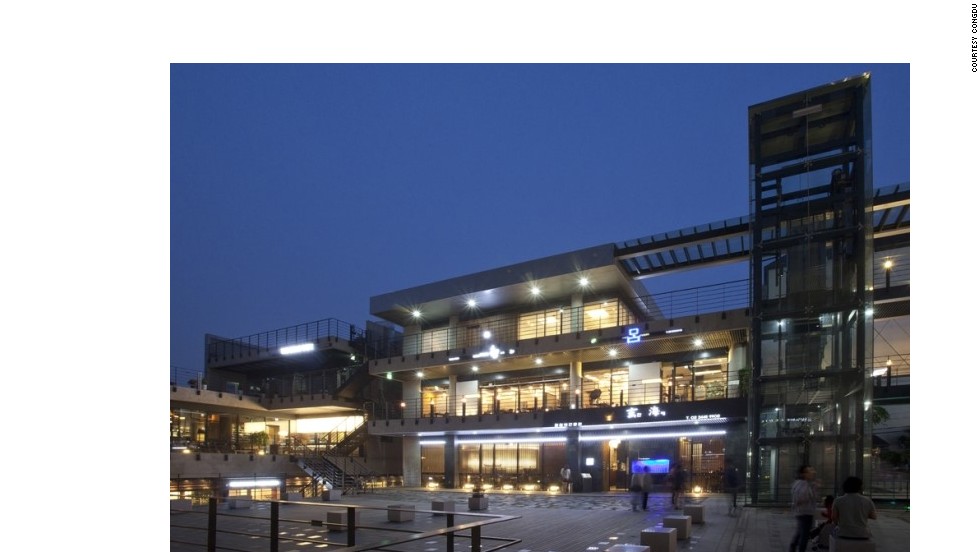
15 photos:
Congdu Maam – Congdu's new little sister, Congdu Maam, has a more family-friendly vibe than its Congdu counterpart.
Hide Caption
7 of 15

15 photos:
Dabang – With retro interior and simple menu, Dabang aims for a 1970s Seoul vibe.
Hide Caption
8 of 15

15 photos:
Don Charly – At last, Mexican-Mexican food in Seoul.
Hide Caption
9 of 15

15 photos:
East Village – Despite its New York name, East Village serves high-end Korean food from chef Kwon Woojoong.
Hide Caption
10 of 15

15 photos:
Garage 107 – Fast, loud and unabashedly modern, Garage 107 is the wacky brainchild of Ferrari race car driver Tacksung Kim.
Hide Caption
11 of 15

15 photos:
Hopscotch – There's no sign outside the restaurant, so you'll have to remember what the exterior looks like.
Hide Caption
12 of 15

15 photos:
Hopscotch – This near-hidden Gangnam gastropub serves duck frites, brisket bites, jambalaya and other American-style dishes that are hard to find in Seoul.
Hide Caption
13 of 15

15 photos:
Magpie Basement – The brewshop serves just two beers, both home-brewed.
Hide Caption
14 of 15

15 photos:
Vault +82 – Vault +82 is the latest stellar single malt whiskey bar to open in Seoul. The bar offers complimentary shoeshine service and umbrellas.
Hide Caption
15 of 15

15 photos:
B28 Seoul – Apgujeong's trendy B28 bar is run by an expat husband-and-wife team and features one of the city's largest selections of single cask and single malt whiskeys.
Hide Caption
1 of 15

15 photos:
Bangbeom Pocha – This casual drinking hole is decorated like an old police station and jail and serves creative anju (food served with alcohol).
Hide Caption
2 of 15

15 photos:
Beale St. – Beale St. serves American-style barbecue in Hongdae, one of Seoul's trendiest districts.
Hide Caption
3 of 15

15 photos:
Beale St. – These short ribs were smoked for six hours-- you can almost smell 'em all the way in Tennessee.
Hide Caption
4 of 15

15 photos:
Congdu – Congdu's is located inside a national treasure -- a traditional Korean building used by the last Chosun king's grandmother. The restaurant serves neo-Korean food.
Hide Caption
5 of 15

15 photos:
Congdu – Congdu's soy sauce crab is made with Korean blue crab.
Hide Caption
6 of 15

15 photos:
Congdu Maam – Congdu's new little sister, Congdu Maam, has a more family-friendly vibe than its Congdu counterpart.
Hide Caption
7 of 15

15 photos:
Dabang – With retro interior and simple menu, Dabang aims for a 1970s Seoul vibe.
Hide Caption
8 of 15















Story highlights
- A dozen new restaurants and bars have added punch to Seoul's dining scene
- Newcomers include neo-Korean restaurants and a Gangnam gastropub
- Single malt whiskey bars continue to open in the city
- Mexican food -- real Mexican food -- has made finally made it to South Korea
Seoul's ever-shifting restaurant and bar scene is dependent on the fickle nature of Korean eaters.
This makes the capital a dangerous place to attempt new ideas, yet one that also forces restaurateurs and bar owners to embrace innovation and change.
A dozen noteworthy arrivals have opened in the past year and a half. They're listed here in alphabetical order.
B28 Seoul
B28 Seoul is owned by Mike Soldner and Grace Chang, who opened the popular B28 bar in Singapore in 2011.
Hidden in a basement in Apgujeong with minimal signage, the Seoul branch has one of the city's largest selections of single cask and single malt whiskeys.
While single malts have long been popular in Seoul, few bars have been dedicated to single cask whiskey.
The most popular variety among B28 customers is Laphroaig Islay Single Cask Single Malt (₩59,000/$53 for a dram, ₩790,000/$710 for a bottle). It's one of six single cask whiskeys the bar stocks.

An expat husband and wife run B28 Seoul.
The couple is working on importing more varieties -- the plan is to eventually offer the most varieties of whiskey in South Korea.
The bar features live jazz on Fridays.
B28 Seoul, B/1 88-2 Cheongdam-dong, Gangnam-gu; +82 10 3402 2828; Monday-Saturday 7 p.m.-4 a.m., closed Sundays; cover charge ₩10,000 ($9)
BangBeom Pocha

The menu changes monthly at BangBeom Pocha.
BangBeom Pocha literally means "Security Tent Bar," and the small, quirky space (originally a dry cleaner) is decorated in the style of an old police station and jail.
"Since we're in a slightly hidden alley, we wanted it to seem as if we were protecting the neighborhood," says co-owner Lee Tae Hoon.
"And since I work in film, I have experience with building sets on police films, so all the police station items are props normally used for movie sets."
An art director for films, Lee owns the unusual pocha (a tented, casual Korean drinking hole) along with two creative friends, Lee Dong Wook, who works in fashion PR, and Jang Jin Woo, a photographer, restaurateur and chef.
The menu belies the casual atmosphere, featuring types of anju (food that goes with alcohol) that aren't available elsewhere in Seoul.
The restaurant purchases all it's ingredients directly from the provinces, and always offers seasonal items on the menu, which changes monthly.
This summer, Jang added a water hoe anju (₩30,000/$27), made with fresh seafood from Pohang.
Also recommended: garlic beef tartare (₩30,000/$27).
BangBeom Pocha, Yongsan-gu Itaewon-2dong 260-100; +82 70 8151 5587; Monday-Saturday, 6 p.m.-3 a.m., closed Sundays
Beale St.

Beale St. short ribs are smoked for six hours.
Located on top of the more well-known Burger B in Hongdae, Beale St. offers excellent southern barbecue.
Sounds impossible in Seoul? It's not.
Owner Choi Sukjun and chef Jisoo Jang (he previously worked at Michelin-starred Michael Mina in San Francisco) devised their menu after several food tours of the states, honing in on Memphis and New Orleans for traditional U.S. barbecue.
"We really filled our brains with info on spices, sauces and tastes," says Choi.
"Our method of creating our menu was to find and replicate the most authentic tastes, and then from there, localize it as needed or change it according to the chef's preferences. We make it exactly the same first, and then vary from there."
Using a commercial smoker shipped in from the United States, Beale St.'s spare ribs are smoked for five hours (₩42,000/$38 for full or ₩22,000/$20 for half).
Short ribs are smoked for six hours (₩45,000/$41 for full or ₩24,000/$22 for half).
They're two of the highlights on the menu. A tomato-based sauce complements both dishes, in the style of Kansas City barbecue.
According to Choi, the commercial smoker brings an entirely different flavor to the meat.
Beale St. also boasts a broad selection of local draft and craft beers from Korea and the United States.
Beale St., 3/F 363-28 Seogyo-dong Mapo-gu; +82 2 322 0755; noon-11 p.m.
Congdu/Maam

If you love soy sauce crab, you'll appreciate Congdu's version, made with Korean blue crab.
Congdu used to be housed in the Seoul National History Museum, but relocated and reopened in a literal national treasure -- a traditional Korean building used by the last Chosun king's grandmother. It's located between what are now the British and U.S. embassies.
As imposing and beautiful as the location is, Congdu doesn't rely solely on its beautiful setting to impress visitors -- it features some of the best Korean food in Seoul.
The menu features neo-Korean cuisine that requires intense labor. The 48-hour, slow-cooked Jeju pork shoulder with aged kimchi (₩38,000/$34) is a reflection of one of Jeju Island's most famous dishes.
Owner Vivian Han travels around Korea to find top suppliers, ingredients and masters, and describes the food as being traditional and simple, but prepared with new methods of cooking.
Han's new Gangnam venture, Maam focuses on seafood.
Though some dishes come from Congdu, others have been tailored for Maam, at a lower price point.
Congdu, 116-1 Deoksu Palace-gil Junggu; +82 2 722 7002; lunch, 11:30 a.m.-2 p.m., cafe, 2-5:30 p.m., dinner, 5:30-10 p.m.; courses from ₩35,000-₩62,000 ($32-56) for lunch; ₩55,000-₩110,000 ($50-99) for dinner
Maam, B/2 SB Tower, Dosandaero Gangnam-gu; +82 2 515 0112; Monday-Friday, lunch 11:30 a.m.-1:50 p.m.; dinner 5:30-9 p.m.; weekends, lunch 11:30 a.m.-2:30 p.m.; dinner 5:30-10 p.m.
Dabang

Thanks in part to hit Korean movie "Sunny," retro-cool flourishes at places like Dabang.
Connected to the only black and white photography printing press in Seoul, Dabang is a throwback to old Korea.
Dabang (a name that refers to old Korean coffee shops) is sparsely decorated with vintage furniture from Korea and the United States.
The owner's inspiration came from poet Yi Sang and the kind of dabang that the poet might work in.
"I kept thinking about what kind of writing, what kind of emotions, what kind of work came from Yi Sang in that place," says owner Kim Hyun Sik about the coffee shop's aesthetic.
The food is also simple, and Kim hopes to pare back the menu even more.
Dishes include typical Korean fare such as kimchi fried rice (₩7,000/$6), as well as items such as yookjeon (beef pancakes), which are reserved for special occasions such as the anniversaries of deaths.
Coffee is hand roasted on site.
Dabang, 84-3 Jongno-gu Gyedong-girl; +82 2 318 0008; 11 a.m.-midnight; closed on the first and third Mondays of each month
Don Charly
Mexican food -- real Mexican food -- has made finally made it to South Korea.
While the quest for Mexican food often stops with Korean-American takes on Mexican food, or pale interpretations of Mexican food, Don Charly is the real thing -- no frills, no kimchi.
Owner Carlos Molina, a Mexico City native, earned a masters in Spanish cooking in Seville, Spain.
Don Charly is a one-man show -- Molina preps, cooks and runs the business.
The line goes out the door most days, not only because so many people crave authentic Mexican food, but because there's no space to mingle indoors.
The menu features tacos and tortas (Mexican-style sandwiches), tequila and beer.
The favorite among ethnic Mexicans is chicharron en salsa verde (₩7,000 or ₩9,000), tacos with deep-fried pork rinds with green sauce.
Locals veer toward the camarones a la crema de chipotle ( ₩8,000 or ₩9,000) with grilled shrimp and spicy chipotle sauce.
When Don Charly's runs out of the fresh ingredients, Molina closes the kitchen, usually around 9 p.m.
Don Charly, 225-10 Itaewon-dong Yongsan-gu; +82 70 8754 4475; Tuesday-Saturday, noon-10 p.m. (closed 2:30-5:30 p.m.), Sunday noon-7 p.m., closed Mondays
East Village

Tteokgalbi turns upscale at East Village.
East Village is the latest modern Korean restaurant on Seoul's upscale dining scene.
"When I was living in New York City, I really liked East Village because it seemed to embrace freedom," says chef and owner Kwon Woojoong, on the story behind the restaurant's name.
With working experience in New York, Hong Kong and Tokyo, Kwon focuses on traditional Korean dishes, upgrading home comfort foods to luxury dishes.
"The perception of Korean food is that it should be cheap and have high quantity, but we're going a different way," says Kwon.
"We take the best parts of Korean food, ones that should be cherished, keeping that alive, but removing the inferior parts, and using different techniques and methods to upgrade the food."
Unlike the milk supplements used in other restaurants, the broth in Kwon's cold bean-soup noodles (kong guksu) is made from pure ground soybeans. His labor-of-love tteok-galbi is made with finely chopped rib meat that's been marinated and shaped in the form of round rice cakes, rather than the more commonly used ground beef.
The result is a diverse menu. Lunch ranges from ₩37,000 to ₩68,000 ($33-61); dinner from ₩66,000 to ₩110,000 ($59-98).
"Normally, in any nation, the food that is considered 'the best' is its the native cuisine, but not in Korea," says Kwon, lamenting the dearth of great fine Korean dining establishments in South Korea.
With East Village, he hopes to change that.
East Village, 626-70 Sinsa-dong Gangnam-gu; +82 2 790 7782; Monday-Saturday, 1:30.-3 p.m., 6-11 p.m., closed Sundays
Garage 107

Garage 107: a Ferrari racer's take on a U.S. diner.
Fast, loud and unabashedly modern, Garage 107 is the wacky brainchild of Ferrari race car driver Tacksung Kim.
"In the beginning, it really was just a garage," says Kim. "I just meant to put in one coffee machine, and then it suddenly became something bigger."
In the traditional area of Bukchon, Garage 107 is a standard cafe by day, but it's one of the area's only lounges open till late (1 a.m.). It's become a place for locals to head out at night without having to trek to Gangnam or Hongdae.
The garage is decked out with disco balls, trophies and a good sound system.
Garage 107's open terrace is a draw -- on sunny days, movies or concert films are projected onto a large white wall.
Food is American-style diner food with dishes from ₩5,000 ($4.50) to ₩12,000 ($11).
Garage 107, 30-2 Jong-no-gu Gahoe-dong; +82 2 763 0015; 9:30 a.m.-1 a.m.
Hopscotch

From the bar to the speakers to the menu, Hopscotch is detail oriented.
A new gastropub that brings a classic American touch to Korea, Hopscotch derives its name from "hops," an essential ingredient in beer and scotch.
"Everybody that comes in here says three things," says owner Bryan Do. "'Wow, I don't feel like I'm in Korea,' 'This has a really comfy feel' and 'It's kind of a hideout.'"
A collaboration between Californians Do and chef David Cho, Hopscotch has an impressively detailed menu, featuring American items such as duck frites (fries double-fried in duck fat, brisket bite (barbecue brisket in ciabatta), jambalaya and specialty salads.
Most of the ingredients come directly from Do's farm outside of Seoul.
But the staple of Hopscotch is beer.
The gastropub features brews on tap as well as a long list of bottled beer.
"I really wanted to promote craft beers in Korea, so we have seven on tap and we specifically make sure that four of those are Korean microbrewery beers," says Do.
While all of the beers can easily be found north of the river, Hopscotch features one of the most diverse selections in Gangnam.
Hopscotch, B/1 113-20 Nonhyeon-dong Gangnam-gu; +82 2 511 0145; Monday-Saturday; 5 p.m.-1 a.m., closed Sundays
Magpie Basement

Magpie Basement offers only two beers, both home-brewed.
Already famous among expats for its home brews, Magpie Brewing Co. opened its first brew shop a year ago and expanded with Magpie Basement, just across the alley, in April.
Though the Basement menu features fewer than 10 items, two beers and five variations on pizza, Magpie Basement has a steady stream of customers seeking an improvement on the watered-down, mass-produced beer of Korea.
"We started and still are very much focused on the beer," says co-owner Tiffany Needham. "We are not interior designers, we are not restaurateurs. We want to focus on our beer, the pale ale, the porter."
Of the only two beers on offer, the pale ale is the best (Magpie intends to add more beers soon).
Magpie Basement, 691 Yongsan-gu, Itaewon-dong; Tuesday-Sunday, 5 p.m.-1 a.m.
Vault +82

The menu at Vault +82 features spirits from around the world.
In a nondescript alley just off Itaewon, Vault +82 is attracting an upscale clientele who appreciate the bar's minimal efforts at promotion (even its lack of exterior signage) since opening six months ago.
The surprisingly expansive two-story bar is modeled after an old American cinema and stocks an impressive collection of whiskey, including the Glenfarclas Family Cask (bottles start at ₩1.7 million/$1,530), which is sold in only six other locations worldwide.
There's a ₩5,000 ($4.50) cover charge, but owners defend the fee as a guarantee of good service.
The bar offers complimentary shoeshine service, as well as other small services, including a rack of free umbrellas for customers who get caught in the rain.
Vault +82, B/1 653-94 Hannam-dong Yongsan-gu; +82 2 7529 4546; 8 p.m.-5 a.m.















